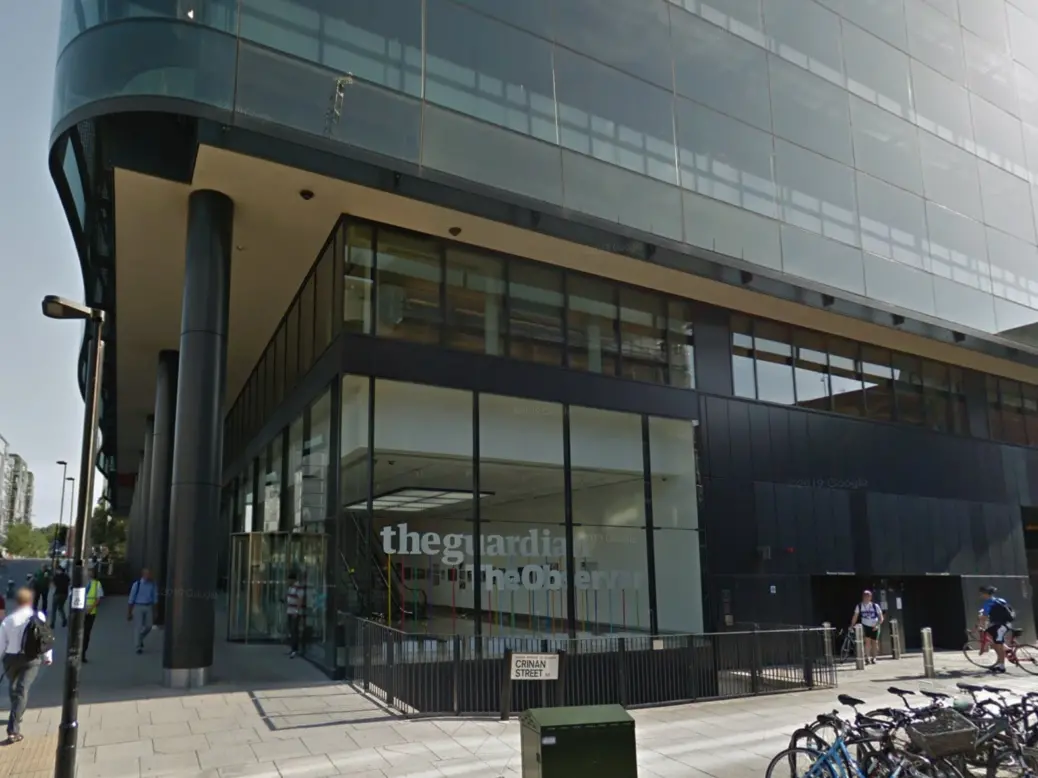The Guardian is aiming to make “a small number of voluntary redundancies” among its journalists as it predicts pressures on costs and revenues will continue “into the next financial year, if not longer”.
Editor-in-chief Katharine Viner emailed staff on Thursday saying that although the publisher is in “a much stronger position” than it was during “the last downturn”, management “have to make some difficult decisions across the business”.
A Guardian News and Media spokesperson told Press Gazette: “We’re targeting cost savings of around 4-5% this year through a range of initiatives including both staff and non-staff costs.
“As part of this we are seeking a limited number of voluntary redundancies in editorial, as we position the business for revenue growth in a rapidly changing digital environment.”
The publisher informed staff in February that advertising revenue had declined by 16%, or £9m, year-on-year in the nine months to 31 December.
Other revenues had also come in below budget, including the reader donations that make up The Guardian’s biggest income stream. This resulted in an estimated cash outflow of £39m for the year to the end of March, compared with £17m the previous year.
Guardian editor: ‘Still work to do to make our business… confidently sustainable’
Viner told employees on Thursday that the business is now better-insulated from the volatile ad market, with the proportion of its revenue coming from ads dropping from 38% to 24% between 2016 and 2024.
Reader funding now makes up 60% of revenue, she said, up from 41% in 2016. Most is from digital, with newsstand revenues dropping from 29% to 16% of the total in the past eight years.
“This is really positive but there is still work to do to make our business digital first, truly global, confidently sustainable,” she wrote.
Viner said that “an advertising recession and challenging market conditions are impacting negatively on all media companies, including The Guardian.
“These conditions are putting both our costs and revenues under pressure and we expect this to continue into the next financial year, if not longer.”
She added the company had “sought to protect editorial budgets where possible, but, after careful consideration we have decided to open a limited voluntary redundancy scheme within the UK editorial department, in which we are seeking a small number of voluntary redundancies”.
The scheme does not affect Guardian US or Guardian Australia staff, and is open to editorial staff who have been employed on a permanent or fixed-term contract for at least two years.
Last week new data in the Advertising Association/Warc Expenditure Report estimated that the UK’s advertising market grew more than 6% in 2023 – but that almost all of that growth went to Alphabet and Google, who dominate online adspend.
In December Guardian US advertising chief Luis Romero told Press Gazette that the current market for news publishers is “the toughest since 2008”, which he was attempting to navigate by building direct relationships with marketers and trying to siphon away the amount advertisers spend with big tech platforms.
Last month The Guardian altered its third-party cookie consent pop-up to encourage users to hand over data and thereby “support The Guardian and your experience”.
In anticipation of the repeatedly-delayed deprecation of third-party cookies on Google Chrome next year the publisher has also rolled out “Guardian Light”, a contextual advertising solution it hopes will allow it to target relevant adverts to the 30% or so of readers who opt to reject all cookies.





